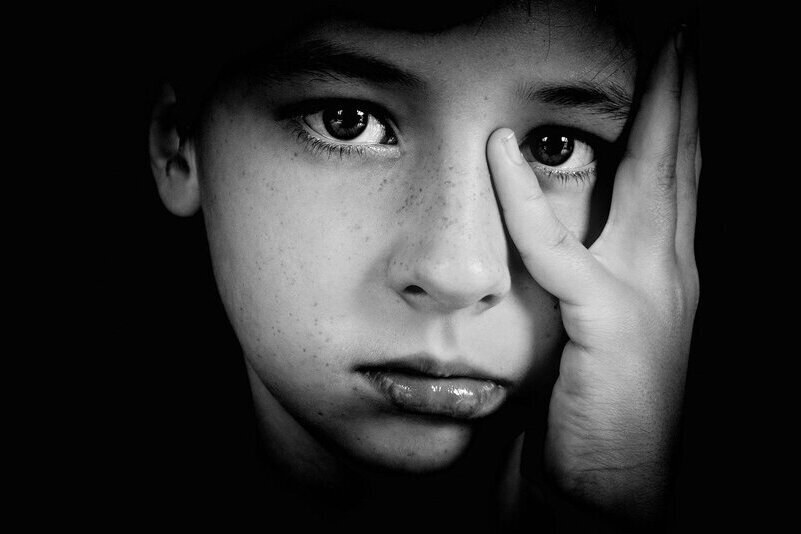Anxiety is a normal part of growing up. Teens face pressure almost daily as they navigate new and unfamiliar situations at school, work & social settings.
Because anxiety is a normal response to the stress teenagers face, it can be difficult to detect. What might seem like a typical response to teen struggles may actually signal an anxiety disorder. Moreover, signs and symptoms of anxiety usually manifest differently in teens than in children or adults, making it even harder to notice.
Knowing the signs and symptoms of anxiety in teens can help you support your teen and recognize whether a disorder is present & anxiety treatment is required.
Anxiety Symptoms in Teens
Teenagers face stressful situations every day, whether it’s public speaking, final exams, school sports or even social activities outside of school, such as going on a first date or starting a new job. These experiences are entirely new for many teens and their anxiety is natural.
However, some teens experience ongoing and high levels of anxiety that may begin to interfere with their mental & physical well-being or adversely affect their grades, friendships & participation in extracurricular activities. In this case, it’s essential to consider the possibility of an anxiety disorder.
To determine whether an anxiety disorder is present, it’s helpful to know the common signs, including changes in your teen’s physical, emotional and social behavior.
Physical Signs
Physical symptoms aren’t always related to anxiety. However, a pattern of physical symptoms may signify an anxiety disorder. For example, frequent headaches may be a sign of stress or anxiety. If you notice any repeat occurrences of the following symptoms, your teen may be experiencing anxiety:
- Frequent headaches or migraines
- Stomachaches or not feeling well with no apparent cause
- Unexplained aches & pains
- Fatigue
- Changes in eating habits
- Increased substance use
Additionally, notice if your teen reports experiencing any of the following physical disruptions:
- Difficulty falling asleep
- Difficulty staying asleep
- Frequent nightmares
- Not feeling well-rested after sleep

Emotional Signs
Growing up is an emotional time. While some teens may be open about their worries, other teens may exhibit more subtle signs of anxiety. Subtle emotional changes to watch out for include:
- Expressing worry about everyday life
- Sudden and unexplained outbursts
- Irritability
- Feeling on edge
- Restlessness
- Difficulty concentrating
- Highly self-conscious or sensitive to criticism
Social Signs
Anxiety can have a significant effect on your teen’s social life. If you recognize any of the following signs in your teen, they may be experiencing high levels of anxiety:
- Avoiding social settings or activities
- Avoiding activities with their usual friend group
- Avoiding new or challenging situations
- Avoiding extracurricular activities
- Spending more time alone
Performance at School or Work
Considering the above anxiety symptoms (lack of sleep, trouble focusing), anxiety can adversely affect a teen’s performance at school or work. Teens experiencing high anxiety levels are likely to want to avoid school and skip classes. Watch out for these changes in your teen:
- Significant decrease in grades
- Frequently missed assignments
- Feeling overwhelmed by their school workload
- Procrastinates on assignments or has difficulty focusing on homework
- Skipping class
Panic Attacks
Panic attacks can be terrifying for teens, especially because they often mimic the feeling of a heart attack. A panic attack can look like:
- Racing heartbeat
- Sweating & shaking
- Dizziness
- Stomachaches
- Labored breathing
- Chest pain
- Feeling like they might be dying or like they’re “going crazy”
- Numbness or tingling in arms & legs
- Feeling detached from their surroundings
Please note that people with anxiety may experience any of these symptoms without having a complete panic attack. Please see our panic attack treatment page for more details.
How to Help a Teenager with Anxiety
The best way to help a teen experiencing anxiety is to let them know you are there to support them & make them feel safe. If they open up to you about their anxiety, you can move forward by proposing one of the following medication options or lifestyle changes.
Anxiety Medication for Teens
Most doctors prescribe selective serotonin reuptake inhibitors (SSRIs) for teens with anxiety. SSRIs help reduce anxiety by stimulating the brain’s production of serotonin, the chemical responsible for regulating mood. Typical SSRIs include:
- Prozac (fluoxetine)
- Celexa (citalopram)
- Zoloft (sertraline)
- Lexapro (escitalopram)
If this route is taken, please ensure that proper medication management is taken to prevent further issues.
Jobs for Teens with Social Anxiety
Social anxiety can make it difficult for teens to excel at work, especially because so many entry-level jobs require some level of social engagement. Teens with social anxiety may feel more at ease in one of the following job roles:
- Kitchen staff
- Stocker
- Cleaner
- Tutor
- Child care assistant
- Library assistant
- Jobs with animals
- Warehouse associate
- Data entry clerk
The above jobs require minimal social interaction, which may help teens with social anxiety to feel less stressed out in the workplace.
If you suspect your teen is dealing with anxiety, talk to their doctor. A primary care physician or your child’s pediatrician can help determine the best treatment methods to help your teen mitigate their anxiety.



